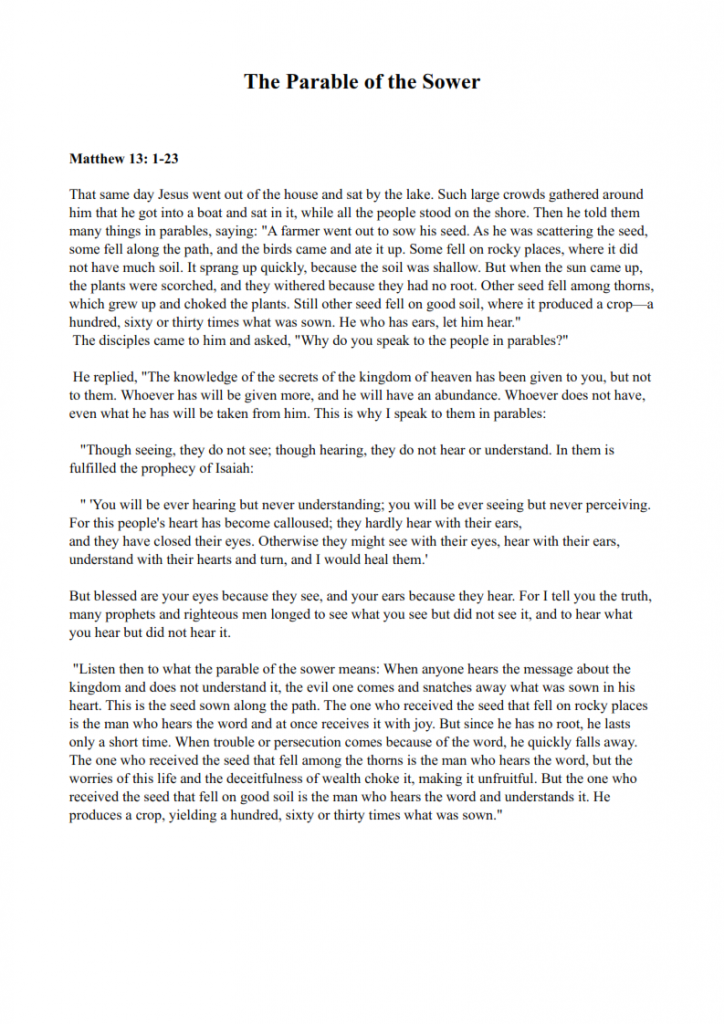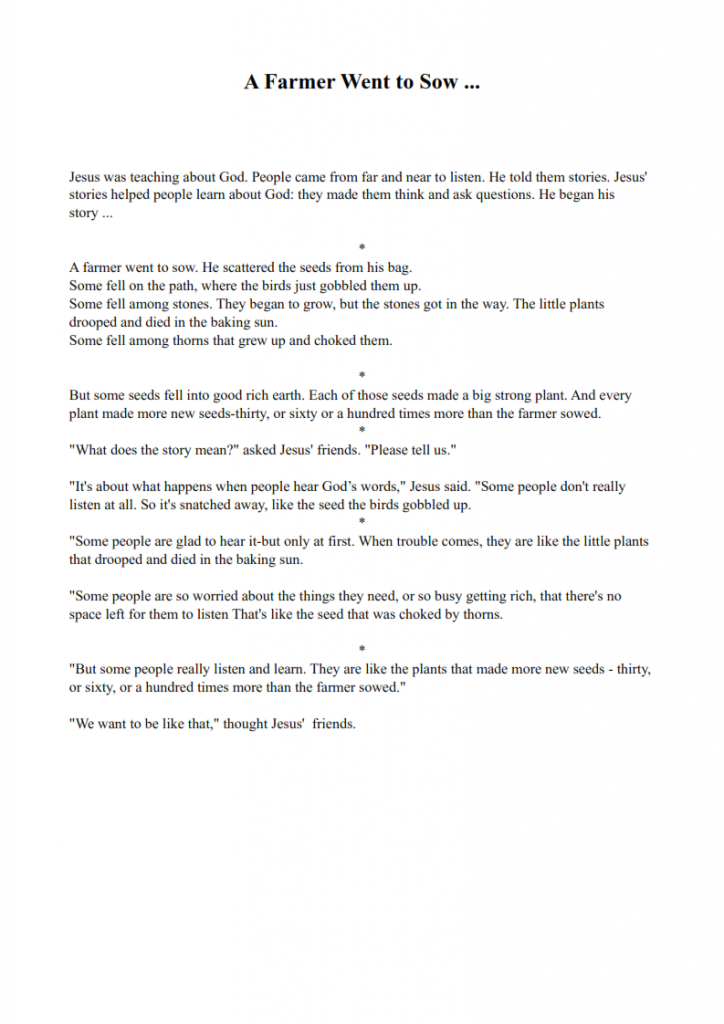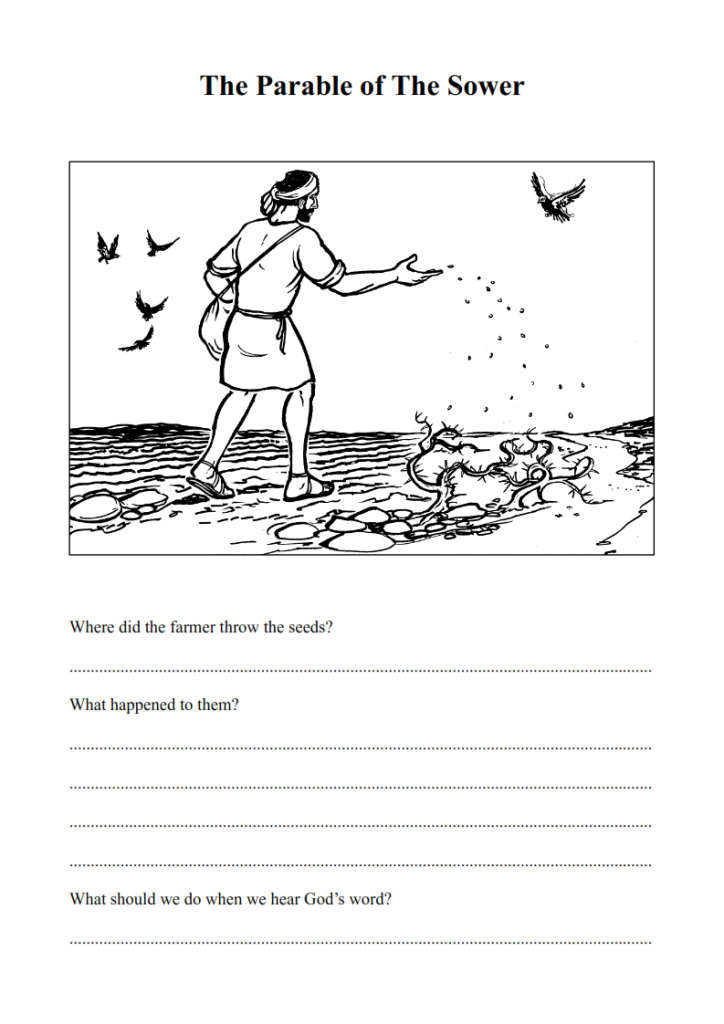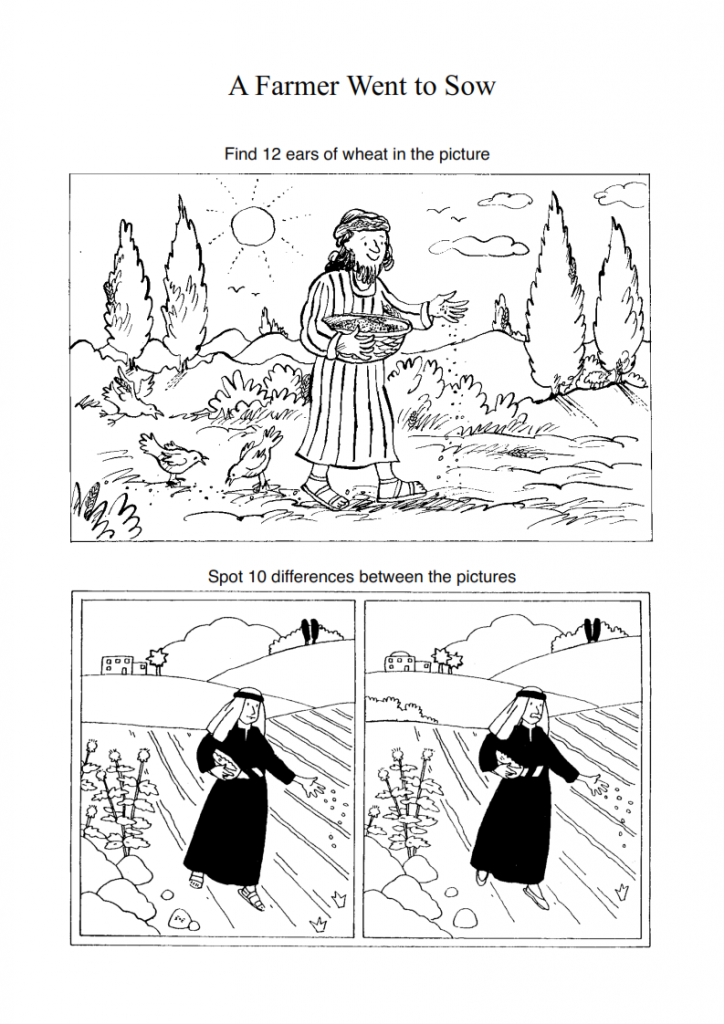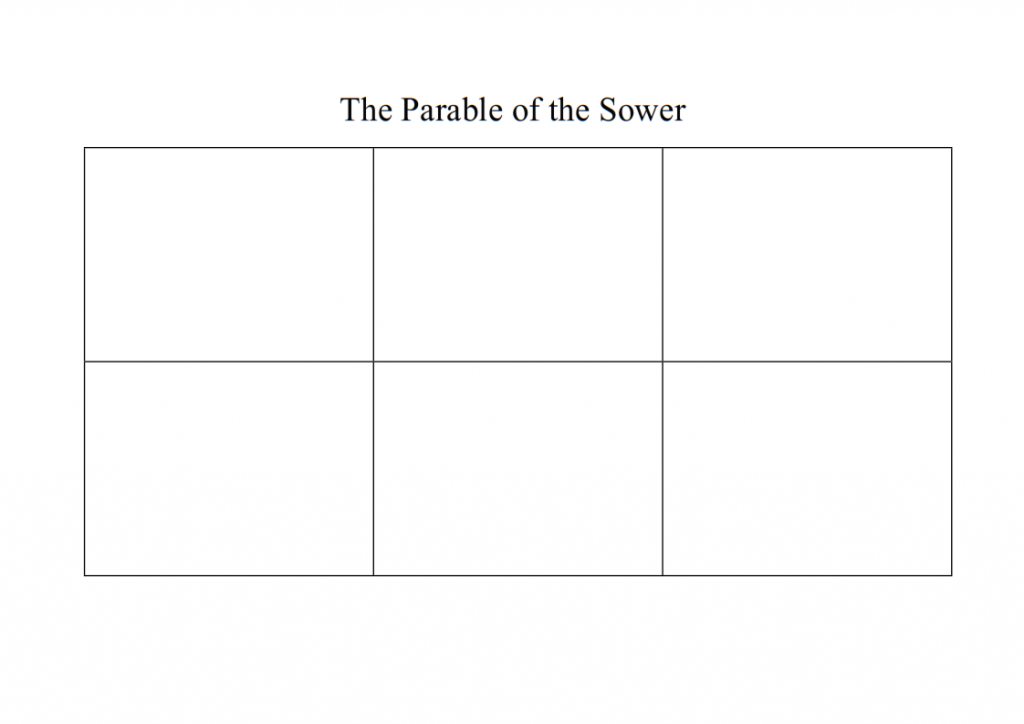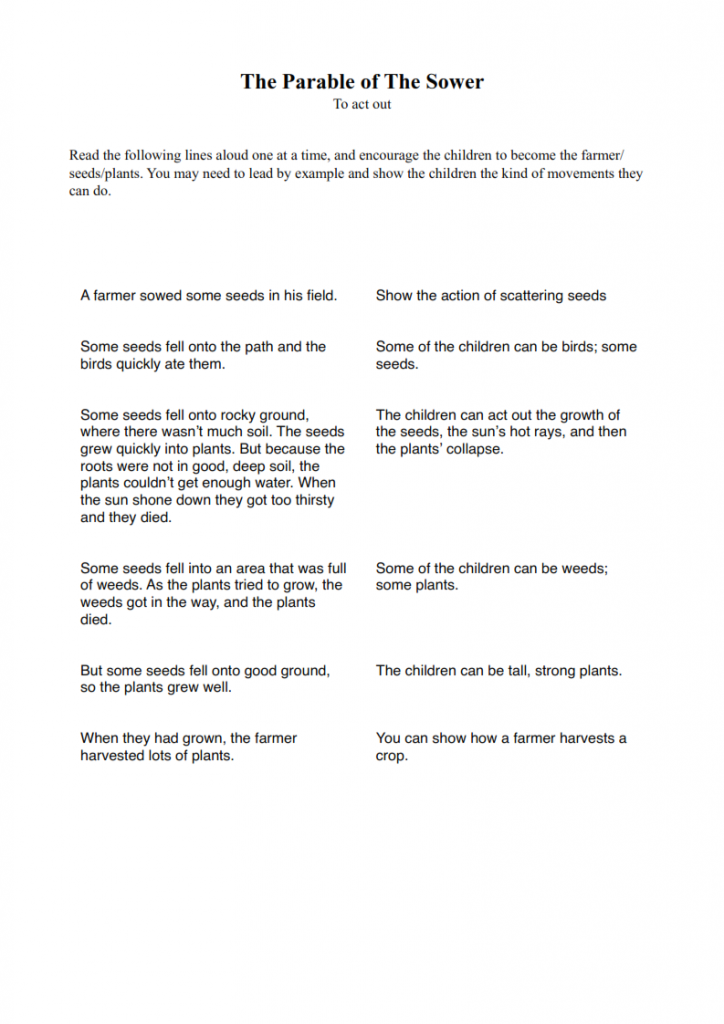Aim to understand the importance of listening to God’s word and practicing it in our daily life
Aim
* To understand the importance of listening to God’s word and practicing it in our daily life
Materials
* Moses’ 10 Commandments & Jesus’ 2 Commandments
* The Parable of the Sower – Matthew 13:1-23
* A Farmer went to sow (a simpler version)
* Visual aids – large pictures to tell the story
* children’s worksheet
* Spot-the-difference pictures
* storyboard
Lesson Outline
1. Introduction
2. The Parable of the Sower
3. What does it mean?
4. What kind of person are you?
5. Activities – act out the story, storyboard, worksheet, spot-the-difference
6. Review the aims
7. Prayer
1) Introduction
* Introduce the lesson by reminding the children of the 10 commandments and Jesus’ 2 commandments
Moses’ 10 Commandments
1. You shall have no other gods before me.
2. You shall not make any idols or pray to other gods
3. You shall not misuse the name of God
4. You shall keep the seventh day as a holy day and a day of rest
5. Honor your father and your mother
6. You shall not murder.
7. You shall not commit adultery.
8. You shall not steal.
9. You shall not lie
10.You shall not be jealous of other people
Jesus’ 2 Commandments
1. Love the Lord your God with all your heart and with all your soul and with all your mind.
2. Love your neighbor as yourself
The commandments are God’s words to teach us right and wrong, to show us how to be good and how to be happy. To love God and love your neighbour are the two most important.
Parents teach what is right and wrong. If you really listen to your parents and do as you are told, they will be happy and you will be happy. Then you will grow into a beautiful person – good, strong
and loving.
2) The Parable of the Sower
* Jesus told stories to teach people about God. These stories are called parables. Last week you heard the story of the Good Samaritan. Jesus was teaching the second commandment; love your
neighbour. Today’s parable has another message.
* What does a seed need to grow? soil, water, sunshine
* Tell the story by asking questions. E.g. What do you think happens when seeds fall on rocky ground? Ask the children to retell the story
3) What does it mean?
The farmer is like Jesus or someone who teaches about God and the seed is like the message of God. Jesus sows the seeds in different places, and different people react differently to God’s
message.
Four kinds of people
When seeds fall on the path and are eaten by the birds it’s like when people hear God’s word, but don’t really listen and don’t understand what they hear. They carry on living their lives without
God. The birds are symbolic of Satan who snatches the words away
The seeds that fall on the rocky ground grow quickly but then die because they can’t take root and the sun scorches them. This teaches us that some people listen at first and receive the word with
joy, but their their understanding has no depth. When difficulties or persecution come because they are following God’s word, they give up on God and quickly fall away.
The seeds that fall among the weeds are choked and the plants die. Some people accept God’s message, but other things get in the way – they worry about things they need or think too much
about money. There’s no space left to listen. Like the weeds that choke the plants, these people’s faith is smothered.
But the seeds that fall on good soil grow into big, healthy plants. The good soil is like the hearts of people who love God, who hear the good news and rejoice. They really listen and learn. God’s word takes root in their lives, and they remain faithful to God. Their faith grows stronger and stronger.
4) What kind of person are you?
When we listen to God’s words and take them into our heart, and put these words into practice, we develop our character. We develop a Godly character -caring, helpful, honest, trustworthy,
respectful, etc..
Do you listen to your parents?
Four kinds of children
1. Path – Children who don’t listen to their parents and don’t do as they are told
2. Rocks – Children who listen when they are told, but easily forget. Parents have to keep telling the same things over and over again, and they still don’t do as they are told
3. Weeds – Children who listen and understand, but forget because they want do lots of other things instead.
4. Good Soil – Children who listen well and really takes the words into their heats. They do as they are told and grow to be good children their parents are proud of.
Do you listen to your teachers?
Four kinds of students
1. Path – Children who don’t really listen in class, so they don’t understand. They don’t do the work and learn very little
2. Rocks – Children who listen at first, but they give up when the work is hard. They don’t really understand why they should have to do the work
3. Weeds – Children who listen and really want to do their best, but they have too many other things on their mind, that get in the way of school work – football, TV, computers. They have no time to do their homework
4. Good Soil – Children who listen carefully to the teacher and want to do their best. They work hard, enjoy studying and learn very much. They put lots of effort in to studying and their knowledge
grows and grows.
5) Activities
– Act out the story
– Colour the picture and answer the questions
– Draw and tell the story as a storyboard
– Spot the difference
6) Review the lesson aim
* To understand the importance of listening to God’s word and practicing it in our daily life
What happened in the story? What does it teach us?
7) Prayer


